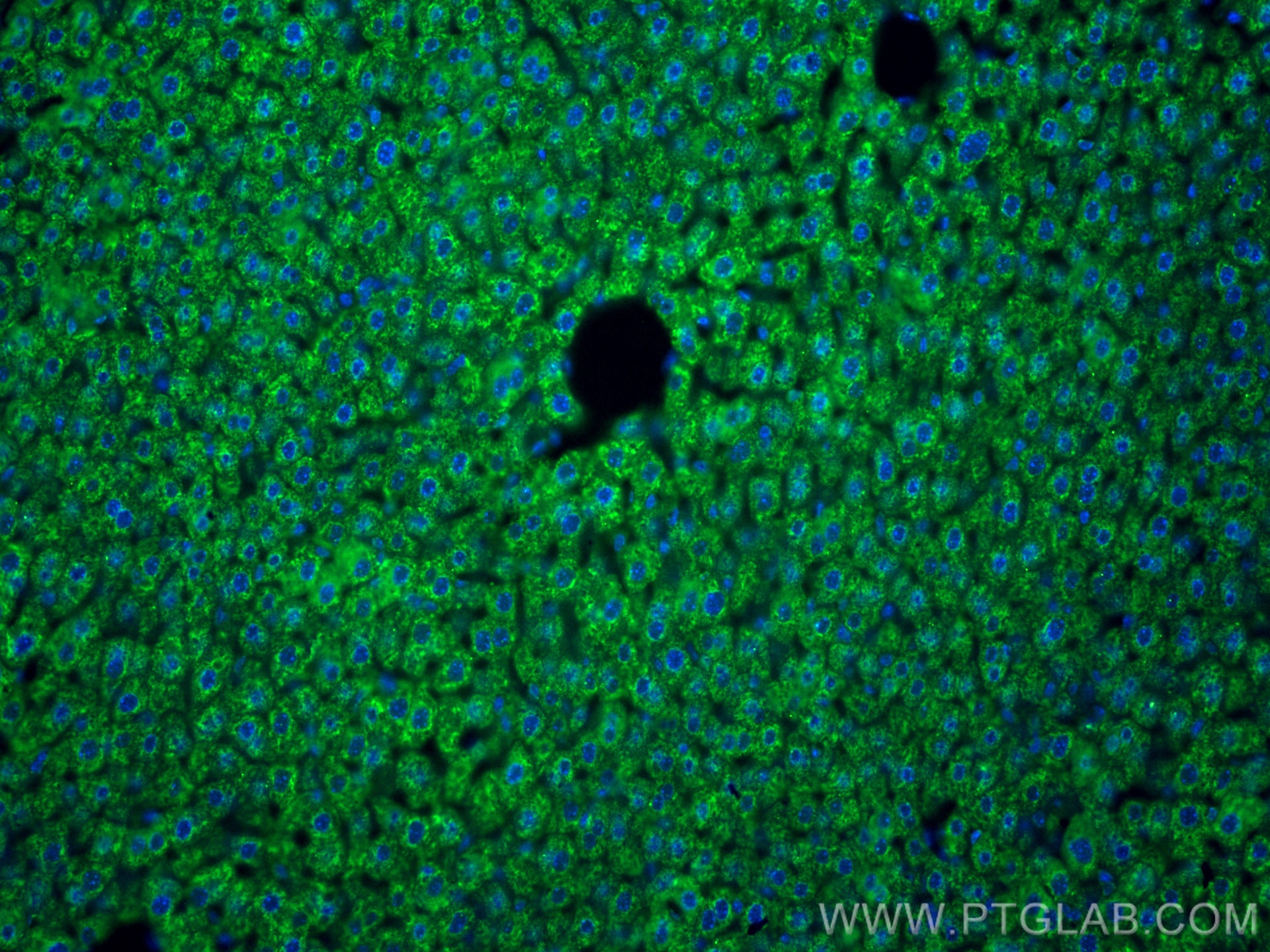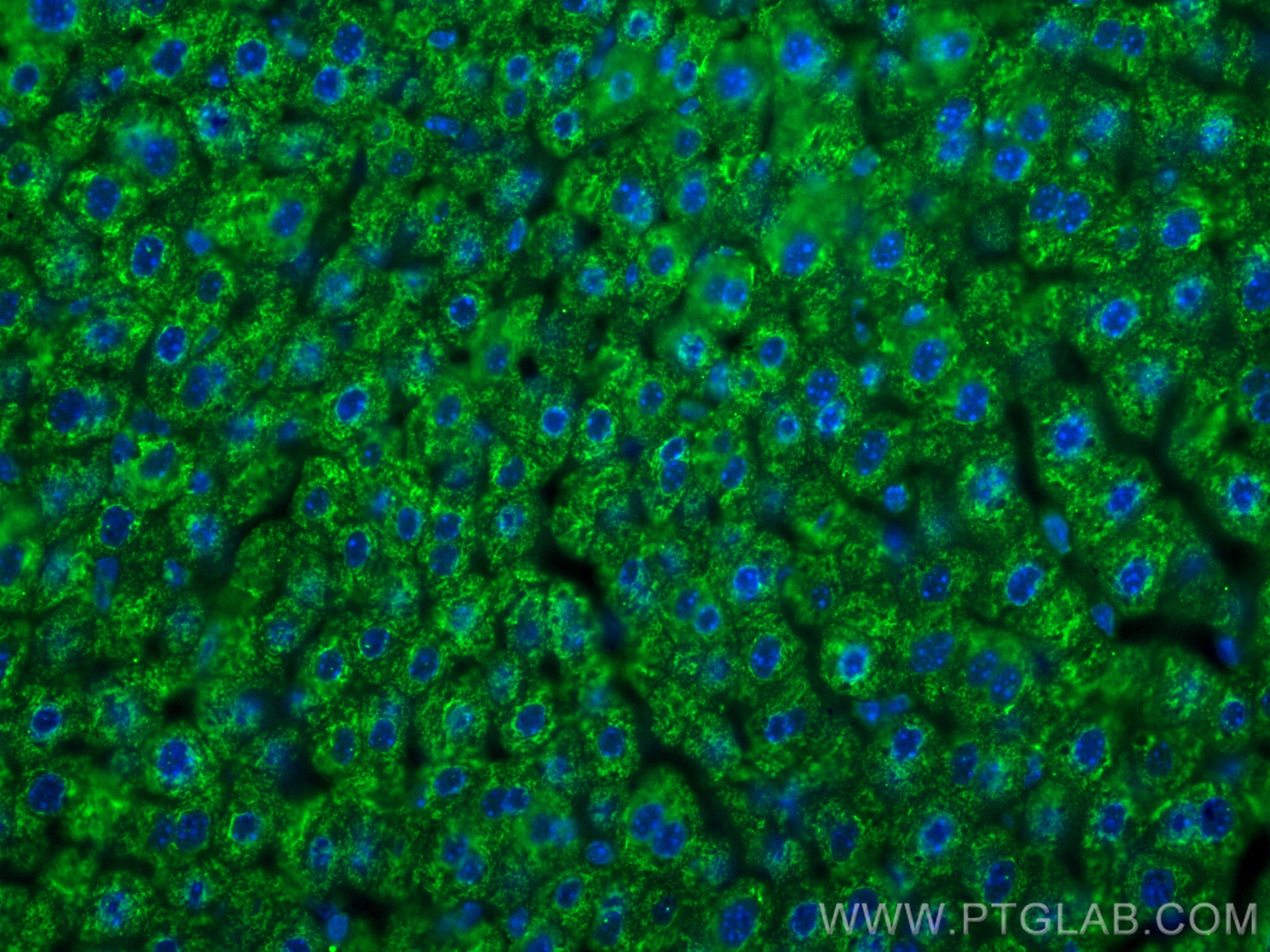CoraLite® Plus 488-conjugated BDH1 Monoclonal antibody
BDH1 Monoclonal Antibody for IF
Host / Isotype
Mouse / IgG1
Reactivity
Human, Mouse, Rat, Pig
Applications
IF
Conjugate
CoraLite® Plus 488 Fluorescent Dye
CloneNo.
2C3D4
Cat no : CL488-67448
Synonyms
Validation Data Gallery
Tested Applications
| Positive IF detected in | mouse liver tissue |
Recommended dilution
| Application | Dilution |
|---|---|
| Immunofluorescence (IF) | IF : 1:50-1:500 |
| Sample-dependent, check data in validation data gallery | |
Product Information
CL488-67448 targets BDH1 in IF applications and shows reactivity with Human, Mouse, Rat, Pig samples.
| Tested Reactivity | Human, Mouse, Rat, Pig |
| Host / Isotype | Mouse / IgG1 |
| Class | Monoclonal |
| Type | Antibody |
| Immunogen | BDH1 fusion protein Ag7864 相同性解析による交差性が予測される生物種 |
| Full Name | 3-hydroxybutyrate dehydrogenase, type 1 |
| Calculated molecular weight | 38 kDa |
| Observed molecular weight | 31 kDa |
| GenBank accession number | BC005844 |
| Gene symbol | BDH1 |
| Gene ID (NCBI) | 622 |
| RRID | AB_2919476 |
| Conjugate | CoraLite® Plus 488 Fluorescent Dye |
| Excitation/Emission maxima wavelengths | 493 nm / 522 nm |
| Form | Liquid |
| Purification Method | Protein G purification |
| Storage Buffer | PBS with 50% Glycerol, 0.05% Proclin300, 0.5% BSA, pH 7.3. |
| Storage Conditions | Store at -20°C. Avoid exposure to light. Aliquoting is unnecessary for -20oC storage. |
Background Information
BDH1 (3-hydroxybutyrate dehydrogenase, type 1) is a 343 amino acid protein that localizes to the mitochondrial matrix and belongs to the short-chain dehydrogenases/reductases (SDR) family. The deduced 343 amino acid protein contains a 46 residue leader peptide, which is cleaved to produce the mature form. It is a lipid-requiring mitochondrial enzyme with a specific requirement of phosphatidylcholine (PC).
Protocols
| Product Specific Protocols | |
|---|---|
| IF protocol for CL Plus 488 BDH1 antibody CL488-67448 | Download protocol |
| Standard Protocols | |
|---|---|
| Click here to view our Standard Protocols |



